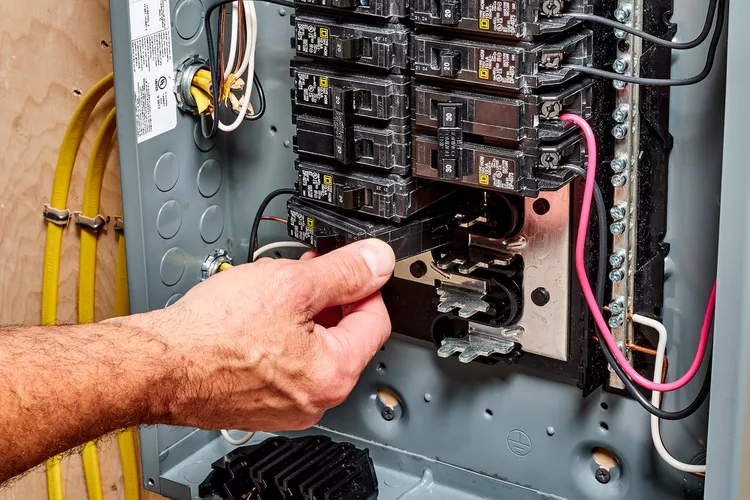My Circuit Breaker is Hot

Why is My Circuit Breaker Hot and What Should I Do About It?
As the hub of your electrical system, your circuit breaker plays a pivotal role in managing power flows and preventing dangerous conditions such as overloads and short circuits. Normally, when your system is functioning optimally, your circuit breaker should remain cool to the touch. But if it begins to feel unusually hot, it's time to investigate.
Unraveling the Mystery
A hot circuit breaker should be taken seriously as it typically indicates underlying issues that could potentially lead to a fire hazard. It can be caused due to several reasons that largely revolve around electrical overloads, faulty wiring, or a malfunctioning circuit breaker. In some instances, the circuit breaker itself might be faulty. It could be that its overheat detection mechanism is compromised, causing the breaker to run hot without tripping.
Understanding Why Your Circuit Breaker is Hot
Typically, circuit breakers are designed to trip when there is too much electricity flowing through it, thus preventing overloads and protecting the circuitry. However, when a breaker fails to trip or is overloaded for too long without tripping, it can become hot to the touch. Several factors can cause this, including a short circuit, an overloaded circuit, or even a loose connection.
- Short Circuit: A short circuit happens when a hot wire (black) comes into contact with another hot wire or a neutral wire (white). This causes a large amount of current to flow, leading to dangerous heat levels that can result in electrical fires.
- Overloaded Circuit: This problem arises when too many power-consuming appliances or devices are connected to the same circuit, causing it to draw more current than it’s rated for. The excess electrical load can generate substantial heat. For example, using your vacuum cleaner, hairdryer and heater all on the same circuit could lead to an overload.
- Loose Connection: A loose connection within the circuit breaker can also cause it to get hot. This happens because the current may spark or arc across the gap, producing heat.
What to Do About a Hot Circuit Breaker?
If your circuit breaker is hot, you should not ignore it. Outlined below are three potential courses of action.
- Identify the Issue: First and foremost, try to identify what is causing your circuit breaker to heat up. This can involve checking for any overloaded circuits or unplugging and testing different appliances one by one. If you have a multimeter and are comfortable using it, you can also measure the current on your circuit to see if it's within acceptable levels.
- Circuit Breaker Replacement: If the breaker is older or has failed in some way, it’s recommended to replace it. If you're not experienced with such tasks, please hire a professional electrician.
- Consult with a Professional: Electrical systems can be complex and potentially dangerous. Therefore, if you’re unable to pinpoint the issue or if the breaker remains hot after eliminating potential causes, it’s best to consult with a licensed electrician promptly.
Let The Pros At Surfside Help You
A hot circuit breaker can be a sign of serious electrical problems that can potentially lead to fires if not addressed. While some troubleshooting can usually be done at home, it's essential to consult with a professional electrician for anything beyond basic checks to ensure the safety of your home and family. Remember, it's always better to err on the side of caution when dealing with electricity.
- Free Estimates - No-hassle estimates!
- Free Assessments - Call today!
- Safety First - Background checks on everyone!
- A Wave of Excellence - Only the best pros!
- Free Estimates - No-hassle estimates!
- Free Assessments - Call today!
- Safety First - Background checks on everyone!
- A Wave of Excellence - Only the best pros!